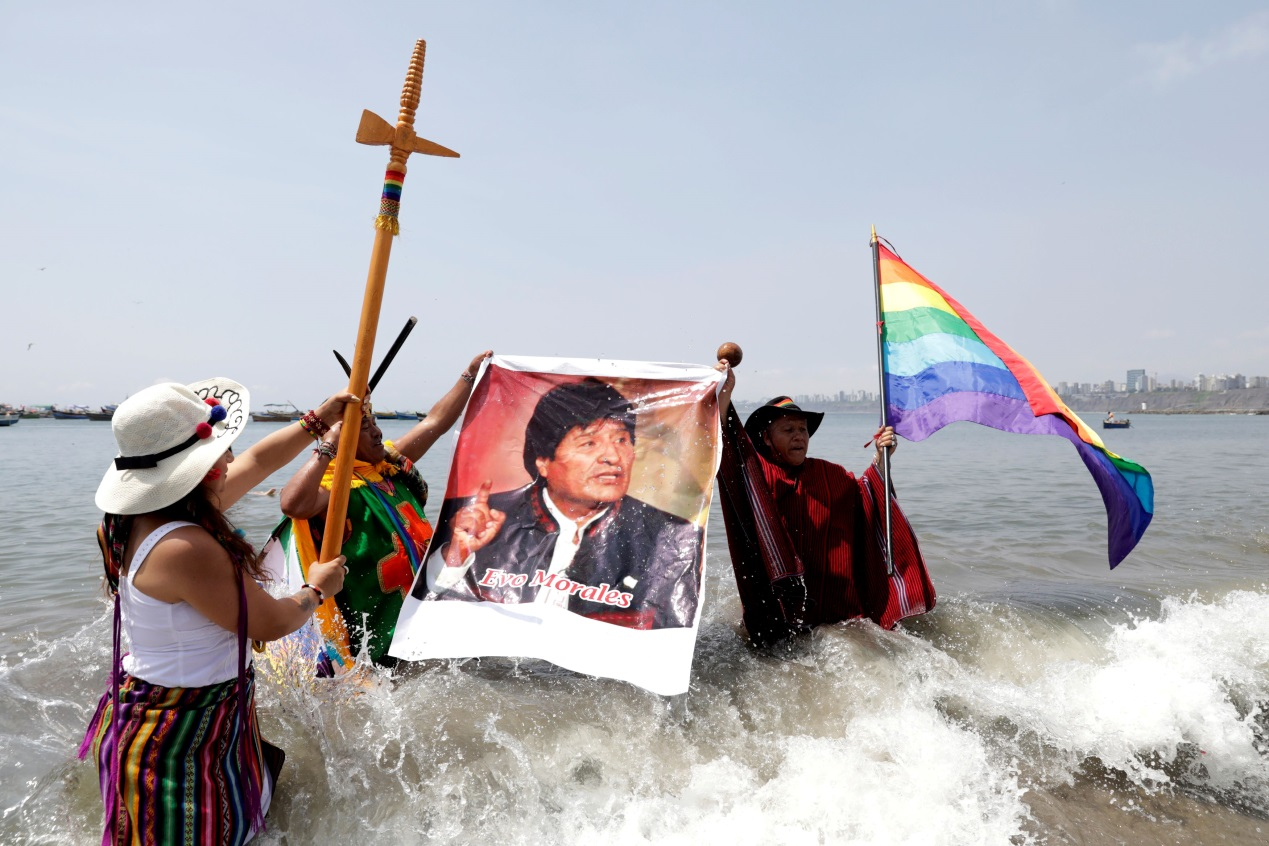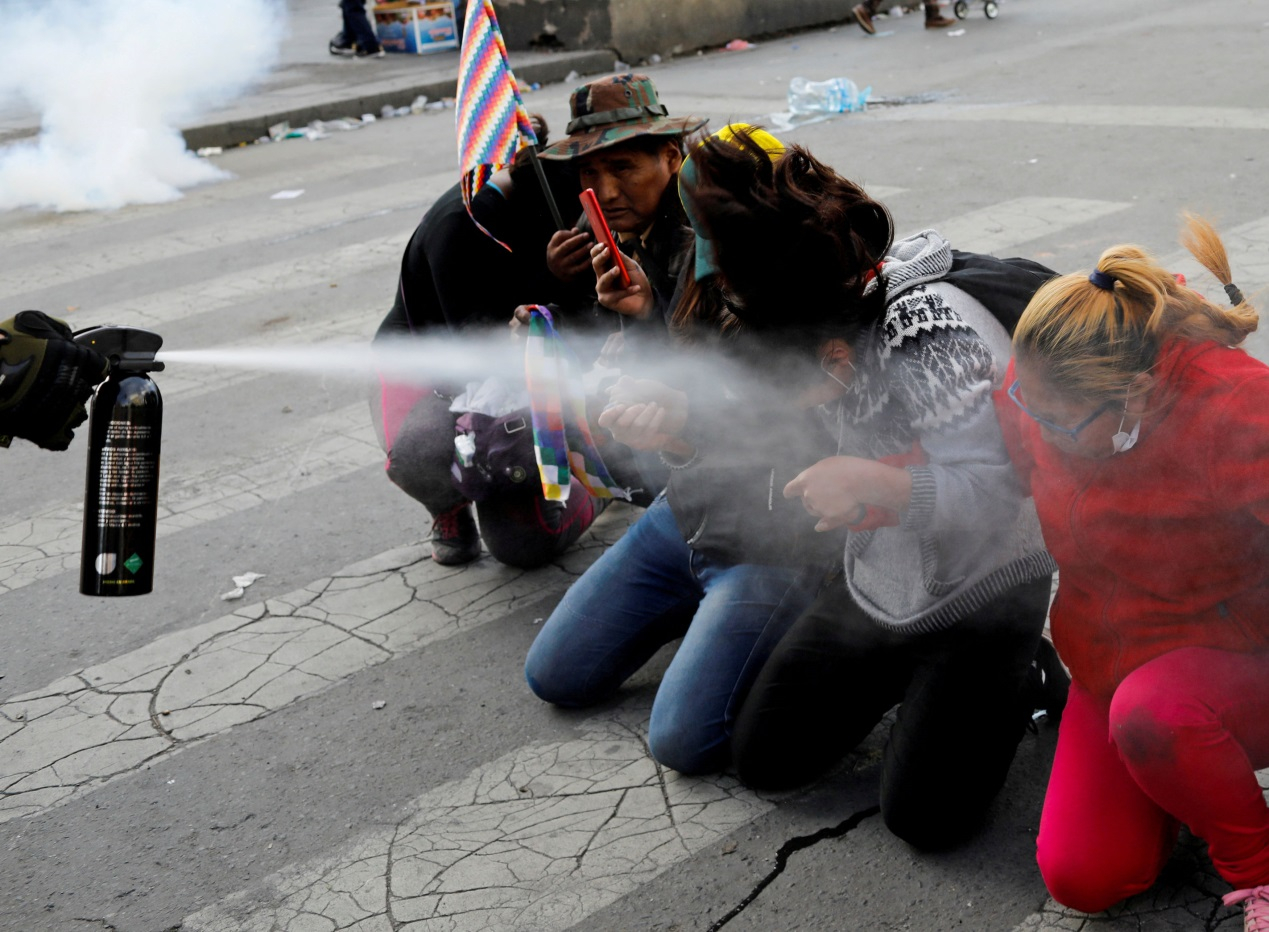2019 was witness to political and social unrest in Latin America. Anti-establishment protests have swept though the region, shaking the political landscape in places like Venezuela and Bolivia.
03:30

Protests started the year in Venezuela, with thousands gathering in capital Caracas, echoing the demands of opposition leader Juan Guaido that President Nicholas Maduro step down.
Following what they saw as a rigged election in which Maduro claimed victory, Guaido – president of the opposition-controlled National Assembly – called for an uprising against the Maduro-led government, declaring himself the interim president of the country. He soon received the recognition of 54 countries, including the United States.
Maduro accused Washington of supporting what he called a "coup" attempt. Amid international sanctions and domestic chaos, the successor of former President Hugo Chavez managed to hold on to power, making it through one of the biggest challenges to his political career. Maduro made it clear that, in his view, there's only one president – and that's him.

Peruvian shamans hold a poster of former Bolivian President Evo Morales as they perform a ritual of predictions for the new year at Pescadores beach in Chorrillos, Lima, Peru, December 26, 2019. /Reuters Photo
Peruvian shamans hold a poster of former Bolivian President Evo Morales as they perform a ritual of predictions for the new year at Pescadores beach in Chorrillos, Lima, Peru, December 26, 2019. /Reuters Photo
Unlike Maduro, his Bolivian counterpart Evo Morales was kicked out of the top post after an election fraud scandal in October. Morales was declared winner of the 2019 presidential election, but was then caught up in alleged manipulation of electoral results. Much like a single spark, the incident soon started a prairie fire of nationwide protests.
The ongoing demonstrations and loss of support from the military forced the nation's first indigenous president and its longest-serving leader to step down in November. Morales has called the incident a "coup" and "political prosecution."

Demonstrators are pepper-sprayed by a member of the security forces during clashes between supporters of former Bolivian President Evo Morales and the security forces, in La Paz, Bolivia, November 15, 2019. /Reuters Photo
Demonstrators are pepper-sprayed by a member of the security forces during clashes between supporters of former Bolivian President Evo Morales and the security forces, in La Paz, Bolivia, November 15, 2019. /Reuters Photo
The 60-year-old former coca leaf farmer and union leader fled to Mexico before travelling to Argentina, where he was granted refugee status in mid-December. Several days later, Bolivian prosecutors issued an arrest warrant for Morales for alleged sedition and terrorism. They accused the ousted president of ordering his supporters to blockade cities in an attempt to topple the interim government headed by Jeanine Anez. Morales says he does not fear being arrested and wants to return to his home country.
As 2019 comes to an end, the future for Evo Morales still hangs in the balance.